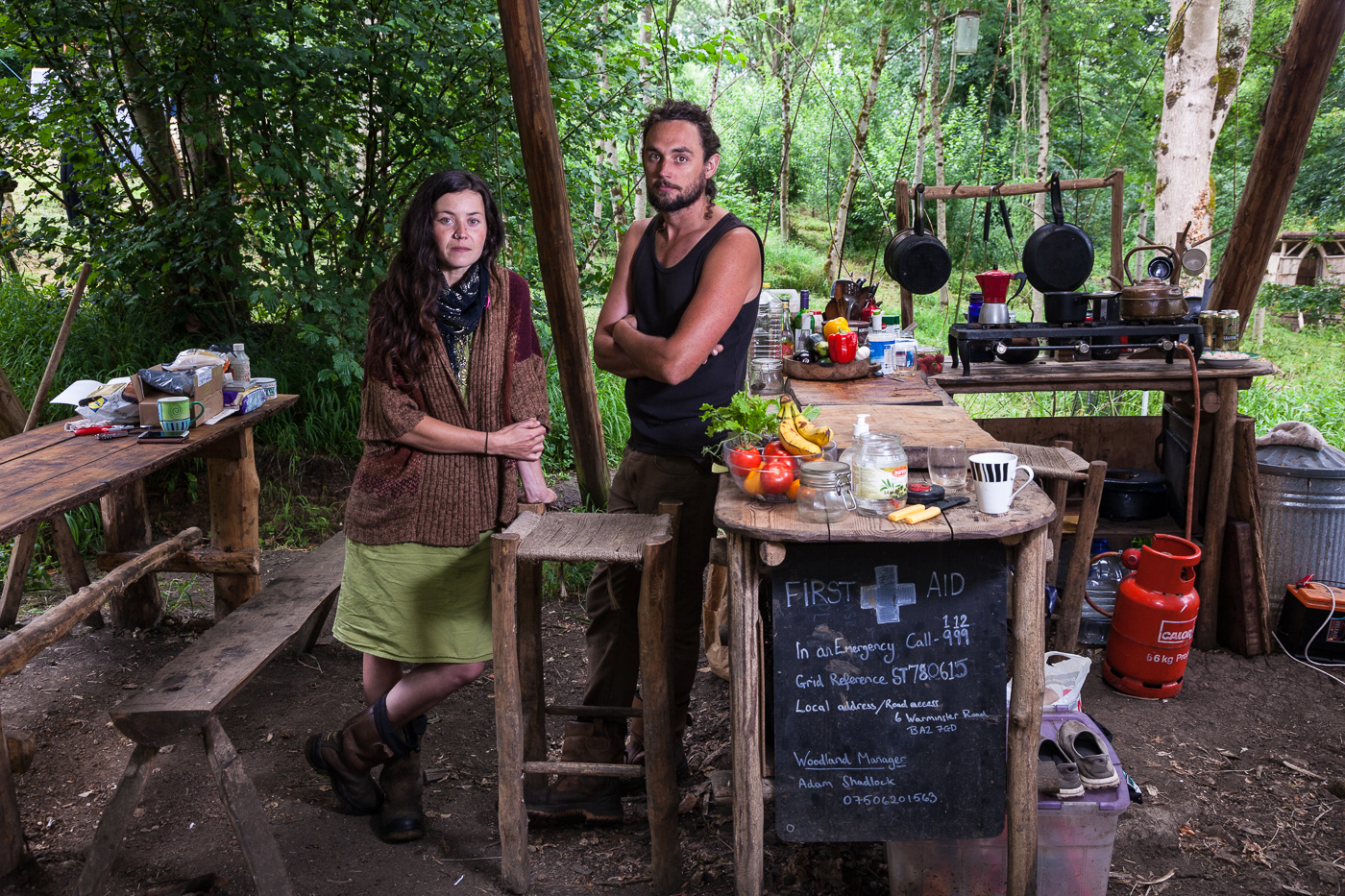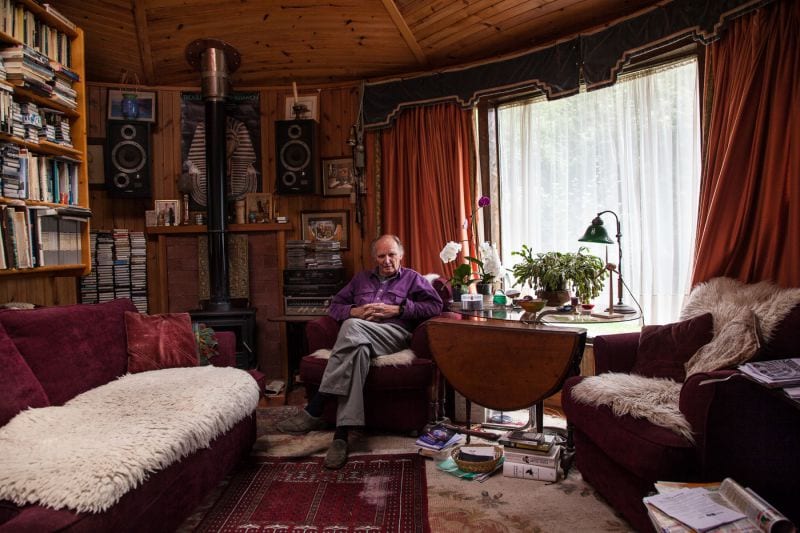
Unser Anteil am Klimawandel: Wie viel CO² produzieren wir jährlich?
Roger, Lebenskünstler, 4.2 Tonnen CO²
Roger ist Langzeitbewohner der „Findhorn Community“, einem Ökodorf im Norden von Schottland. Er lebt in einem selbstgebauten Haus, hergestellt aus einem Whiskey Barrel.
‘When I came here in 1974 ecological awareness was virtually nil. Most of us lived in caravans and thought little of it. In building this house I imagined I could do it for £3000. I ended up spending £10,000 but for that I built it and furnished it, and did so with support from the community, in the form of an architect and a joiner, and lots of help from guests. It’s a nice cosy little nest. We have just had the twentieth anniversary celebration of Global Eco-Village Network event here last year. We had representatives from about three hundred eco-villages all over the world. There are now several thousand eco-villages in that network and they seem to be going from strength to strength. There’s going to be a delegation at the UN climate change talks in Paris presenting themselves as being a positive response and a mitigating factor in the whole climate change issue by virtue of learning to live both sustainably, and with a heightened quality of life. Eco-villages are basically positive alternatives to what is, in terms of consumption oriented lifestyles, the driving force of our global system at the moment. By using our available resources more sustainably, we are essentially modeling the way that we believe the rest of the world has to change in order to make human life on this planet sustainable. I fear that it’s going to take mother nature, Gaia herself, shall we say, to demonstrate who’s in charge. And maybe eventually we’ll get the message. Gaia will survive humanity, but if humanity will survive on Gaia remains to be seen. It’s about making the adjustments required to enable humanity to become a viable long-term species. Our downside here at Findhorn is that we’re a guest economy, we are a tourism economy. We depend on people coming to us, travelling, usually flying. That’s our tragic flaw. Our Achilles heel.’


